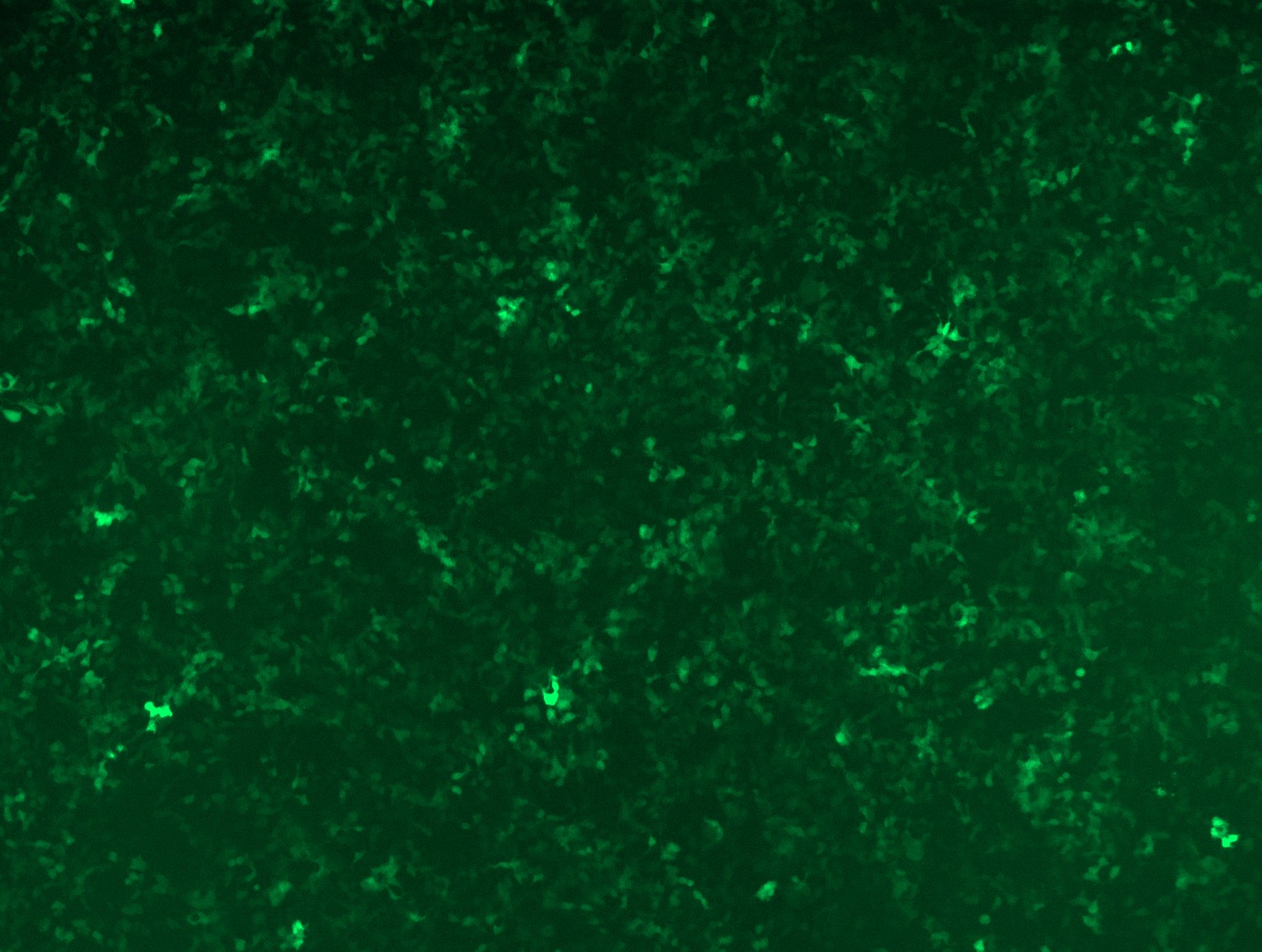DNA Polymerase theta (POLQ) Human shRNA Plasmid Kit (Locus ID 10721)
Frequently bought together (3)
Other products for "POLQ"
Specifications
| Product Data | |
| Locus ID | 10721 |
| Synonyms | DKFZp781A0112; DNA polymerase eta; DNA polymerase theta; POLH; POLH, PRO0327, DKFZp781A0112; polymerase (DNA directed), theta; PRO0327 |
| Vector | pGFP-C-shLenti |
| E. coli Selection | Chloramphenicol (34 ug/ml) |
| Mammalian Cell Selection | Puromycin |
| Format | Lentiviral plasmids |
| Kit Components | POLQ - Human, 4 unique 29mer shRNA constructs in lentiviral GFP vector(Gene ID = 10721). 5µg purified plasmid DNA per constructNon-effective 29-mer scrambled shRNA cassette in pGFP-C-shLenti Vector, TR30021, included for free. |
| RefSeq | NM_006596, NM_199420, NM_199420.1, NM_199420.2, NM_199420.3, NM_006596.3, BC034254, BC172289 |
| UniProt ID | O75417 |
| Summary | DNA polymerase that promotes microhomology-mediated end-joining (MMEJ), an alternative non-homologous end-joining (NHEJ) machinery triggered in response to double-strand breaks in DNA (PubMed:25642963, PubMed:25643323). MMEJ is an error-prone repair pathway that produces deletions of sequences from the strand being repaired and promotes genomic rearrangements, such as telomere fusions, some of them leading to cellular transformation (PubMed:25642963, PubMed:25643323). POLQ acts as an inhibitor of homology-recombination repair (HR) pathway by limiting RAD51 accumulation at resected ends (PubMed:25642963). POLQ-mediated MMEJ may be required to promote the survival of cells with a compromised HR repair pathway, thereby preventing genomic havoc by resolving unrepaired lesions (By similarity). The polymerase acts by binding directly the 2 ends of resected double-strand breaks, allowing microhomologous sequences in the overhangs to form base pairs. It then extends each strand from the base-paired region using the opposing overhang as a template. Requires partially resected DNA containing 2 to 6 base pairs of microhomology to perform MMEJ (PubMed:25643323). The polymerase activity is highly promiscuous: unlike most polymerases, promotes extension of ssDNA and partial ssDNA (pssDNA) substrates (PubMed:18503084, PubMed:21050863, PubMed:22135286). Also exhibits low-fidelity DNA synthesis, translesion synthesis and lyase activity, and it is implicated in interstrand-cross-link repair, base excision repair and DNA end-joining (PubMed:14576298, PubMed:18503084, PubMed:19188258, PubMed:24648516). Involved in somatic hypermutation of immunoglobulin genes, a process that requires the activity of DNA polymerases to ultimately introduce mutations at both A/T and C/G base pairs (By similarity).[UniProtKB/Swiss-Prot Function] |
| shRNA Design | These shRNA constructs were designed against multiple splice variants at this gene locus. To be certain that your variant of interest is targeted, please contact techsupport@origene.com. If you need a special design or shRNA sequence, please utilize our custom shRNA service. |
| Performance Guaranteed | OriGene guarantees that the sequences in the shRNA expression cassettes are verified to correspond to the target gene with 100% identity. One of the four constructs at minimum are guaranteed to produce 70% or more gene expression knock-down provided a minimum transfection efficiency of 80% is achieved. Western Blot data is recommended over qPCR to evaluate the silencing effect of the shRNA constructs 72 hrs post transfection. To properly assess knockdown, the gene expression level from the included scramble control vector must be used in comparison with the target-specific shRNA transfected samples. For non-conforming shRNA, requests for replacement product must be made within ninety (90) days from the date of delivery of the shRNA kit. To arrange for a free replacement with newly designed constructs, please contact Technical Services at techsupport@origene.com. Please provide your data indicating the transfection efficiency and measurement of gene expression knockdown compared to the scrambled shRNA control (Western Blot data preferred). |
Documents
| Product Manuals |
| FAQs |
| SDS |
Resources
| RNAi Resources |
{0} Product Review(s)
0 Product Review(s)
Submit review
Be the first one to submit a review
Product Citations
*Delivery time may vary from web posted schedule. Occasional delays may occur due to unforeseen
complexities in the preparation of your product. International customers may expect an additional 1-2 weeks
in shipping.






























































































































































































































































 Germany
Germany
 Japan
Japan
 United Kingdom
United Kingdom
 China
China


![GFP signal was observed under microscope at 48 hours after transduction of [TL302376C] virus into HEK293 cells. [TL302376C] virus was prepared using lenti-shRNA [TL302376C] and TR30037 packaging kit.](https://cdn.origene.com/assets/images/rnai/shrna-lentiviral-particle/100/tl302376vc.jpg?d=110x110)
![GFP signal was observed under microscope at 48 hours after transduction of [TL302376D] virus into HEK293 cells. [TL302376D] virus was prepared using lenti-shRNA [TL302376D] and TR30037 packaging kit.](https://cdn.origene.com/assets/images/rnai/shrna-lentiviral-particle/100/tl302376vd.jpg?d=110x110)